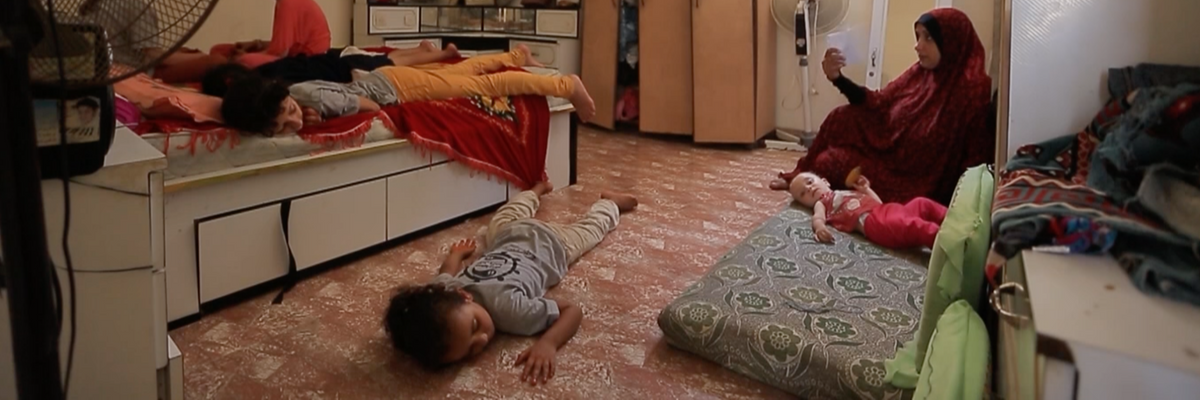Save the Children called on Israel to lift its blockade of the Gaza Strip on Tuesday, reporting that one million children there are coping with "unlivable" conditions, as schools and households struggle to function with limited basic services and the constant threat of conflict.
While the United Nations warned in 2012 that the Gaza Strip would become unlivable by 2020 if Israel's blockade was not lifted, the humanitarian group finds that the area has already descended into uninhabitable conditions.
"The continued Israeli occupation and splits within the Palestinian leadership are making life unbearable. If you're ten years old in Gaza you've already witnessed three massive and violent escalations of conflict."--Jennifer Moorehead, Save the Children
The U.N. has reported similar findings, with its top humanitarian official in Gaza, Robert Piper, saying last week, "for most of us that unlivability point has already been passed. And yet somehow the Gazans soldier on."
Following the seizure of the Gaza Strip in 2007 by Hamas, Israel's air, sea, and land blockade has left the 139-square-mile strip--one of the most densely populated places in the world--completely isolated. Thousands of Palestinians have been killed in Israeli offensives in the region since 2008.
"Sadly, the children of Gaza are caught in one of the most politicized conflicts in the world," said Jennifer Moorehead, country director of the Occupied Palestinian Territories for Save the Children. "The continued Israeli occupation and splits within the Palestinian leadership are making life unbearable. If you're ten years old in Gaza you've already witnessed three massive and violent escalations of conflict."
Many households in Gaza are struggling with only two to four hours of electricity per day, while more than 740 schools are barely functional amid the energy crisis that's plagued the region since April, when Gaza's sole power plant was forced to shut down due to lack of fuel reserves and funds.
The Gaza Strip's crumbling infrastructure has also created a shortage of safe drinking water, Save the Children reported, with 90 percent of the region's water too contaminated for consumption.
The energy shortage means access to health and emergency services has been limited, regular baths and showers have been impossible for many, and children have been unable to eat fresh food due to lack of refrigeration.
"Gaza's children are sweating in the stifling summer heat, unable to sleep, play, or study," said Moorehead. "We shouldn't have to be demanding such a basic service as electricity for the children of Gaza. A couple of hours of power a day is just not acceptable in 2017."
